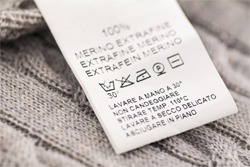Consumers are inundated with product labels that have very little substantive information to back them up, they may see a simple green checkmark, or the words “eco-friendly” on a garment label, but there is often little evidence to back up these claims.
Atkinson flags up the potential of eco labelling collaborations between the public and private sectors. “Government labels have the credibility, but private labels have the appeal,” she says, “For clothing, the challenge in applying effective labels is to make sure the environmental benefits don’t come at the expense of more salient attributes like style, fit, image, etc.
For consumers to find value in eco-labels, they must not have to compromise the very personal reasons for buying specific brands. If the shirt isn’t comfortable, isn’t fashionable, isn’t an effective signal of style and taste, then no amount of eco-friendly attributes will save it.”
One way to circumvent these consumer apprehensions about ecolabels in the context of items like clothing, is to frame the eco-benefits as value added, emphasising what consumers get in return for buying them, Atkinson concludes.
Signalling the Green Sell: The Influence of Eco-Label Source, Argument Specificity, and Product Involvement on Consumer Trust, published in the Journal of Advertising, is available to download here: http://bit.ly/1Chomt2
This article was first published in the April/May 2015 issue of Ecotextile News, page 37. For more information and to subscribe, click here.







